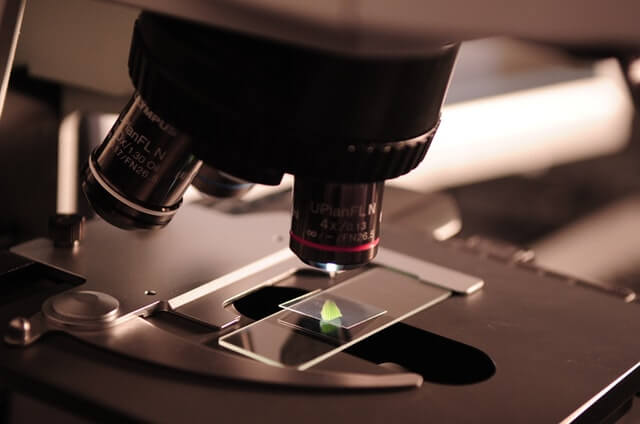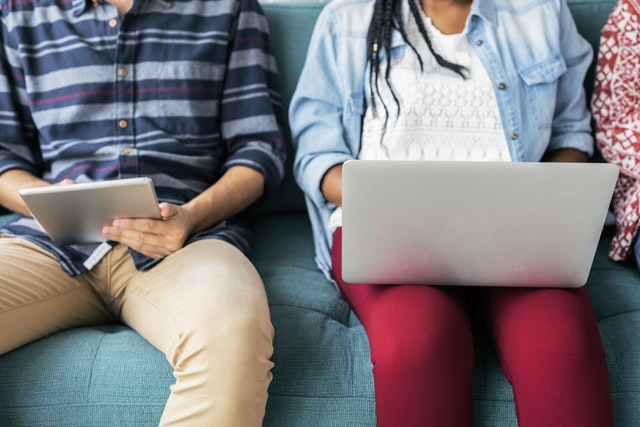60 Psychology Experiment Ideas
Here are a number of great psychology experiment ideas. If you need an idea for an experiment, this is a great place to start.

If you’re taking a psychology class, you’re likely tasked with designing an experiment or study at some point. Choosing the right psychology experiment idea is crucial and often depends on several factors, including the number of participants you can gather, the time constraints of your project, and the materials available to you. Before you settle on an experiment, consider these aspects carefully.
In this article, we will explore a variety of psychology experiment ideas that can inspire your project and guide you through the research process.
A Quick List of Psychology Experiment Ideas
If you are looking for a quick experiment idea that would be easy to tackle, the following might be some research questions you want to explore:
- How many items can people hold in short-term memory?
- Are people with a Type A personality more stressed than those with a Type B personality?
- Does listening to upbeat music increase heart rate?
- Are men or women better at detecting emotions?
- Are women or men more likely to experience imposter syndrome?
- Will students conform if others in the group all share an opinion that is different from their own?
- Do people’s heartbeat or breathing rates change in response to certain colors?
- How much do people rely on nonverbal communication to convey information in a conversation?
- Do people who score higher on measures of emotional intelligence also score higher on measures of overall well-being?
- Do more successful people share certain personality traits?
More Experiment Topics to Explore
Most of the following ideas are easily conducted with a small group of participants, who may likely be your classmates. Some of the psychology experiment or study ideas you might want to explore:
Sleep and Short-Term Memory
Does sleep deprivation have an impact on short-term memory?
Ask participants how much sleep they got the night before and then conduct a task to test short-term memory for items on a list.
Social Media and Mental Health
Is social media usage linked to anxiety or depression?
Ask participants about how many hours a week they use social media sites and then have them complete a depression and anxiety assessment.
Procrastination and Stress
How does procrastination impact student stress levels?
Ask participants about how frequently they procrastinate on their homework and then have them complete an assessment looking at their current stress levels.
Caffeine and Cognition
How does caffeine impact performance on a Stroop test?
In the Stroop test, participants are asked to tell the color of a word, rather than just reading the word. Have a control group consume no caffeine and then complete a Stroop test, and then have an experimental group consume caffeine before completing the same test. Compare results.
Color and Memory
Does the color of text have any impact on memory?
Randomly assign participants to two groups. Have one group memorize words written in black ink for two minutes. Have the second group memorize the same words for the same amount of time, but instead written in red ink. Compare the results.
Weight Bias
How does weight bias influence how people are judged by others?
Find pictures of models in a magazine who look similar, including similar hair and clothing, but who differ in terms of weight. Have participants look at the two models and then ask them to identify which one they think is smarter, wealthier, kinder, and healthier.
Assess how each model was rated and how weight bias may have influenced how they were described by participants.
Music and Exercise
Does music have an effect on how hard people work out?
Have people listen to different styles of music while jogging on a treadmill and measure their walking speed, heart rate, and workout length.
The Halo Effect
How does the Halo Effect influence how people see others?
Show participants pictures of people and ask them to rate the photos in terms of how attractive, kind, intelligent, helpful, and successful the people in the images are.
How does the attractiveness of the person in the photo correlate to how participants rate other qualities? Are attractive people more likely to be perceived as kind, funny, and intelligent?
Eyewitness Testimony
How reliable is eyewitness testimony?
Have participants view video footage of a car crash. Ask some participants to describe how fast the cars were going when they “hit into” each other. Ask other participants to describe how fast the cars were going when they “smashed into” each other.
Give the participants a memory test a few days later and ask them to recall if they saw any broken glass at the accident scene. Compare to see if those in the “smashed into” condition were more likely to report seeing broken glass than those in the “hit into” group.
The experiment is a good illustration of how easily false memories can be triggered.
Simple Psychology Experiment Ideas
If you are looking for a relatively simple psychology experiment idea, here are a few options you might consider.
The Stroop Effect
This classic experiment involves presenting participants with words printed in different colors and asking them to name the color of the ink rather than read the word. Students can manipulate the congruency of the word and the color to test the Stroop effect.
Memory Recall
Students can design a simple experiment to test memory recall by presenting participants with a list of items to remember and then asking them to recall the items after a delay. Students can manipulate the length of the delay or the type of encoding strategy used to see the effect on recall.
Social Conformity
Students can test social conformity by presenting participants with a simple task and manipulating the responses of confederates to see if the participant conforms to the group response.
Selective Attention
Students can design an experiment to test selective attention by presenting participants with a video or audio stimulus and manipulating the presence or absence of a distracting stimulus to see the effect on attention.
Implicit Bias
Students can test implicit bias by presenting participants with a series of words or images and measuring their response time to categorize the stimuli into different categories.
The Primacy/Recency Effect
Students can test the primacy/recency effect by presenting participants with a list of items to remember and manipulating the order of the items to see the effect on recall.
Sleep Deprivation
Students can test the effect of sleep deprivation on cognitive performance by comparing the performance of participants who have had a full night’s sleep to those who have been deprived of sleep.
These are just a few examples of simple psychology experiment ideas for students. The specific experiment will depend on the research question and resources available.
10 Cognitive Psychology Experiment Ideas
If you want to explore a topic in cognitive psychology, here are 10 ideas to get you started:
- Memory recall and emotion: Investigate how emotional content influences memory recall by comparing participants’ ability to remember neutral versus emotional stories presented to them.
- Effects of multitasking on cognitive performance: Study how performing multiple tasks simultaneously affects performance on cognitive tasks, measuring reaction times and accuracy in completing a primary task.
- Priming and decision-making: Examine how exposure to specific words or images can influence participants’ subsequent choices in decision-making tasks, assessing the impact of priming on their selections.
- Impact of cognitive load on problem-solving: Investigate how varying levels of cognitive load (e.g., working memory demands) affect participants’ ability to solve complex problems or puzzles.
- Visual perception and illusions: Study how different types of visual illusions affect participants’ perception and interpretation of images, analyzing how context influences their understanding.
- Language processing speed: Examine how bilingualism impacts language processing speed by testing participants on language tasks in their native and second languages.
- The role of sleep on memory consolidation: Investigate the relationship between sleep quality and memory retention by testing participants on a memory task before and after different sleep durations.
- Spatial awareness and navigation: Explore how different types of navigation strategies (e.g., map-based vs. landmark-based) influence participants’ ability to navigate through virtual environments.
- Attention and selective perception: Study how distractions affect participants’ ability to focus on a primary task, measuring how external stimuli impact their performance and attention span.
- The role of context in memory retrieval: Investigate how context influences memory retrieval by presenting participants with a list of words in a specific setting (e.g., a quiet room versus a noisy environment) and then testing their recall of the words in different contexts.
10 Social Psychology Experiment Ideas
Some ideas that might inspire your research in social psychology include:
- Peer pressure: Examine how group dynamics influence personal choices by surveying participants on risky versus safe options.
- Conformity: Test how group size affects conformity by having participants answer questions in varying group sizes and comparing their responses.
- Social media impact: Analyze the effect of limiting social media use on self-esteem by having participants complete self-assessments before and after the experiment.
- Behavioral labels: Explore how labeling individuals as “leaders” or “followers” influences their interactions in group tasks.
- Authority influence: Investigate how perceived authority affects decision-making by creating scenarios where participants must choose to obey or defy directives.
- Humor in persuasion: Examine whether humorous messages are more effective than serious ones in persuading participants about a product or topic.
- First impressions: Assess how initial interactions shape long-term perceptions of individuals in social situations.
- Groupthink: Analyze how group cohesion leads to poor decision-making by observing discussions around controversial topics.
- Online vs. in-person communication: Compare the effectiveness of communication styles in digital versus face-to-face interactions.
- Emotional contagion: Investigate how emotions are spread within a group by measuring mood changes before and after group interactions.
10 Developmental Psychology Experiment Ideas
Development is one interesting topic area you might want to explore in your research. Some ideas you might consider include:
- Attachment styles and emotional regulation: Investigate how different attachment styles (secure, anxious, avoidant) in children influence their ability to regulate emotions in stressful situations through observational studies.
- Effects of parenting styles on child development: Study the impact of authoritative, authoritarian, and permissive parenting styles on children’s self-esteem and social skills by surveying parents and assessing children’s behaviors in structured settings.
- Language acquisition and social interaction: Examine how the frequency and quality of social interactions influence language acquisition in toddlers by comparing language development in children with different levels of verbal interaction.
- Impact of screen time on attention span: Investigate how varying amounts of screen time affect attention span in preschoolers by conducting attention-focused tasks before and after screen exposure.
- Moral development and peer influence: Study how peer interactions influence moral reasoning in adolescents by presenting them with moral dilemmas and analyzing their responses in group discussions versus individual settings.
- Role of play in cognitive development: Explore how different types of play (free play versus structured play) affect cognitive skills like problem-solving and creativity in early childhood by observing children during playtime.
- Socialization and gender roles: Investigate how exposure to gendered toys and activities influences children’s understanding of gender roles by comparing children’s preferences and behaviors in mixed-gender and single-gender playgroups.
- Resilience in childhood: Examine factors that contribute to resilience in children facing adversity by conducting interviews with children and parents to identify coping strategies and support systems.
- Impact of early education on academic achievement: Study the long-term effects of early childhood education programs on academic performance in later years by analyzing test scores and classroom behaviors of students who attended different types of early education.
- The influence of culture on identity development: Investigate how cultural background shapes identity development in adolescents by conducting surveys and interviews that explore the intersection of cultural values and personal identity.
5 Forensic Psychology Experiment Ideas
Interested in forensic psychology? Here are some experiment ideas that might inspire you:
- Witness memory accuracy: Investigate how the time elapsed since witnessing an event affects memory recall accuracy by presenting participants with a video and later testing their memory of details.
- The effect of stress on decision-making: Study how different stress levels impact decision-making in simulated police interrogation scenarios by varying stress-inducing factors and analyzing participant choices.
- Facial recognition and emotion: Examine how different emotional expressions on faces influence participants’ ability to accurately recognize faces in a lineup setting.
- Influence of media on perception of crime: Analyze how exposure to crime-related media influences participants’ perceptions of safety and risk in their own communities through surveys before and after media exposure.
- Role of empathy in jury decision-making: Explore how jurors’ levels of empathy affect their verdicts by presenting them with case studies and measuring their emotional responses.
Elements of a Good Psychology Experiment
Finding psychology experiment ideas is not necessarily difficult, but finding a good experimental or study topic that is right for your needs can be a little tough. You need to find something that meets the guidelines and, perhaps most importantly, is approved by your instructor.
Requirements may vary, but you need to ensure that your experiment, study, or survey is:
- Easy to set up and carry out
- Easy to find participants willing to take part
- Free of any ethical concerns
In some cases, you may need to present your idea to your school’s institutional review board before you begin to obtain permission to work with human participants.
Tips for Finding a Good Experimental Idea
Consider Your Own Interests
At some point in your life, you have likely pondered why people behave in certain ways. Or wondered why certain things seem to always happen. Your own interests can be a rich source of ideas for your psychology experiments.
As you are trying to come up with a topic or hypothesis, try focusing on the subjects that fascinate you the most. If you have a particular interest in a topic, look for ideas that answer questions about the topic that you and others may have. Examples of topics you might choose to explore include:
- Memory
- Attention
- Development
- Personality
- Social behavior
- Language
This can be a fun opportunity to investigate something that appeals to your interests.
Read About Classic Psychology Experiments
Sometimes, reviewing classic psychological experiments that have been done in the past can give you great ideas for your own psychology experiments. For example, the false memory experiment above is inspired by the classic memory study conducted by Elizabeth Loftus.
Textbooks can be a great place to start looking for topics, but you might want to expand your search to research journals. When you find a study that sparks your interest, read through the discussion section. Researchers will often indicate ideas for future directions that research could take.
Ask Your Instructor
Your professor or instructor is often the best person to consult for advice right from the start.
In most cases, you will probably receive fairly detailed instructions about your assignment. This may include information about the sort of topic you can choose or perhaps the type of experiment or study on which you should focus.
If your instructor does not assign a specific subject area to explore, it is still a great idea to talk about your ideas and get feedback before you get too invested in your topic idea. You will need your teacher’s permission to proceed with your experiment anyway, so now is a great time to open a dialogue and get some good critical feedback.
Experiments vs. Other Types of Research
One thing to note, many of the ideas found here are actually examples of surveys or correlational studies.
For something to qualify as a true experiment, there must be manipulation of an independent variable.
For many students, conducting an actual experiment may be outside the scope of their project or may not be permitted by their instructor, school, or institutional review board.
If your assignment or project requires you to conduct a true experiment that involves controlling and manipulating an independent variable, you will need to take care to choose a topic that will work within the guidelines of your assignment.
Types of Psychology Experiments
There are many different types of psychology experiments that students could perform. Examples of psychological research methods you might use include:
Correlational Study
This type of study examines the relationship between two variables. Students could collect data on two variables of interest, such as stress and academic performance, and see if there is a correlation between the two.
Experimental Study
In an experimental study, students manipulate one variable and observe the effect on another variable. For example, students could manipulate the type of music participants listen to and observe its effect on their mood.
Observational Study
Observational studies involve observing behavior in a natural setting. Students could observe how people interact in a public space and analyze the patterns they see.
Survey Study
Students could design a survey to collect data on a specific topic, such as attitudes toward social media, and analyze the results.
Case Study
A case study involves in-depth analysis of a single individual or group. Students could conduct a case study of a person with a particular disorder, such as anxiety or depression, and examine their experiences and treatment options.
Quasi-Experimental Study
Quasi-experimental studies are similar to experimental studies, but participants are not randomly assigned to groups. Students could investigate the effects of a treatment or intervention on a particular group, such as a classroom of students who receive a new teaching method.
Longitudinal Study
Longitudinal studies involve following participants over an extended period of time. Students could conduct a longitudinal study on the development of language skills in children or the effects of aging on cognitive abilities.
These are just a few examples of the many different types of psychology experiments that students could perform. The specific type of experiment will depend on the research question and the resources available.
Steps for Doing a Psychology Experiment
When conducting a psychology experiment, students should follow several important steps. Here is a general outline of the process:
Define the Research Question
Before conducting an experiment, students should define the research question they are trying to answer. This will help them to focus their study and determine the variables they need to manipulate and measure.
Develop a Hypothesis
Based on the research question, students should develop a hypothesis that predicts the experiment’s outcome. The hypothesis should be testable and measurable.
Select Participants
Students should select participants who meet the criteria for the study. Participants should be informed about the study and give informed consent to participate.
Design the Experiment
Students should design the experiment to test their hypothesis. This includes selecting the appropriate variables, creating a plan for manipulating and measuring them, and determining the appropriate control conditions.
Collect Data
Once the experiment is designed, students should collect data by following the procedures they have developed. They should record all data accurately and completely.
Analyze the Data
After collecting the data, students should analyze it to determine if their hypothesis was supported or not. They can use statistical analyses to determine if there are significant differences between groups or if there are correlations between variables.
Interpret the Results
Based on the analysis, students should interpret the results and draw conclusions about their hypothesis. They should consider the study’s limitations and their findings’ implications.
Report the Results
Finally, students should report the results of their study. This may include writing a research paper or presenting their findings in a poster or oral presentation.
Sources:
Britt MA. Psych Experiments. Avon, MA: Adams Media; 2007.
Martin DW. Doing Psychology Experiments. Belmont, CA: Cengage Learning; 2008.





